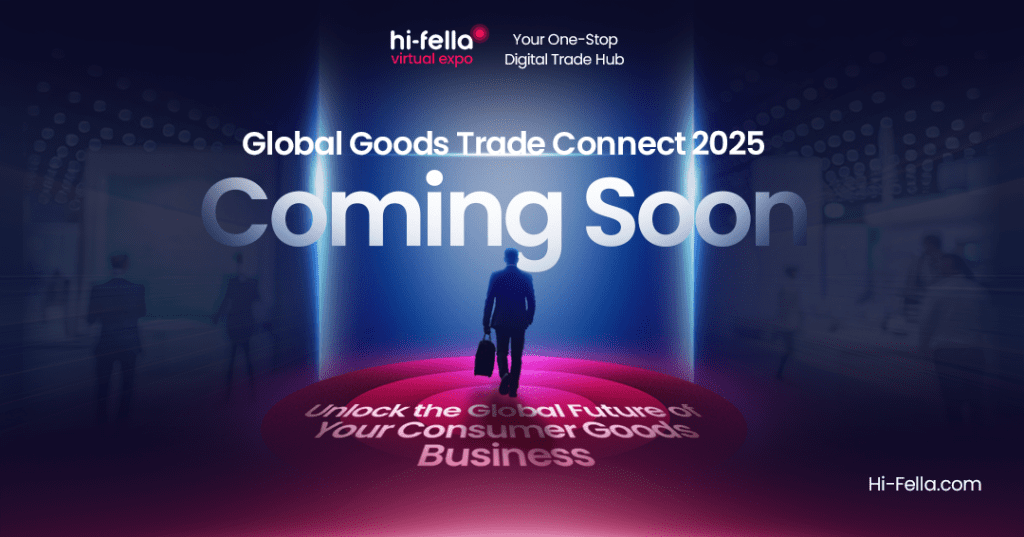When the business world are so busy nowadays, standing out is more important than ever, right? Hosting a private showcase for your brand is like throwing a party where everyone actually wants to be invited! It’s an exclusive opportunity to roll out the red carpet and present your latest innovations to a select audience, creating an atmosphere that’s both engaging and intimate. Think of it as a first date with your potential clients—where you can charm them without the distractions of a crowded room.
But the benefits don’t stop at just making a good impression. A private showcase can be a game-changer for your brand, offering a unique platform to connect, engage, and build lasting relationships. So, let’s dive into the specific perks of hosting one of these fabulous events!
List of Benefits Your Brand Will Get if You Join Private Showcase held by Hi-Fella
1. Targeted Audience
One of the standout benefits of hosting a private showcase is the ability to curate your guest list. You get to handpick attendees who are genuinely interested in your offerings, ensuring that everyone in the room is a potential client or partner. This targeted approach eliminates the noise of crowded trade shows, where you often find yourself shouting into the void, hoping someone will listen. Instead, you create a focused environment where meaningful conversations can flourish.
For example, consider a tech startup that specializes in innovative software solutions. By inviting only industry leaders, potential investors, and key decision-makers, they can engage in discussions that are not only relevant but also impactful. This targeted audience allows the startup to showcase their product in a way that resonates with the specific needs and interests of those present, leading to higher chances of closing deals.
Moreover, having a targeted audience means that you can tailor your messaging and presentations to address the unique challenges and pain points of your guests. This level of personalization not only enhances the overall experience but also positions your brand as a solution provider, making it easier for attendees to envision how your offerings can benefit them.
2. Enhanced Engagement
The intimate setting of a private showcase fosters deeper conversations, allowing for meaningful interactions that can lead to valuable partnerships. Unlike the hustle and bustle of a public event, where distractions abound, a private showcase creates a cozy atmosphere that encourages attendees to engage fully. This environment is perfect for sparking genuine connections, as guests feel more comfortable sharing their thoughts and asking questions.
Take, for instance, a luxury fashion brand that hosts a private showcase for select influencers and fashion editors. In this intimate setting, the brand can engage in one-on-one conversations, allowing them to explain the inspiration behind their latest collection. This personal touch not only captivates the audience but also encourages them to share their insights and feedback, creating a dialogue that can lead to future collaborations.
Furthermore, enhanced engagement means that attendees are more likely to remember your brand long after the event. When people feel heard and valued, they are more inclined to advocate for your brand, whether through word-of-mouth or social media. This organic promotion can be invaluable, as it builds trust and credibility in a way that traditional marketing simply cannot achieve.
3. Confidentiality
In today’s competitive landscape, confidentiality is paramount. Hosting a private showcase allows you to share your trade secrets without fear of competitors eavesdropping. This secure environment enables you to unveil your latest innovations, strategies, and insights, fostering a sense of trust among your guests. When attendees know they are part of an exclusive event, they are more likely to engage openly and honestly.
Consider a biotech company that is on the verge of launching a groundbreaking product. By hosting a private showcase for key stakeholders, they can present their research and findings in a secure setting. This confidentiality not only protects their intellectual property but also allows them to gauge interest and gather feedback from industry leaders who can influence the product’s success.
Moreover, the assurance of confidentiality encourages attendees to share their own insights and challenges, creating a collaborative atmosphere. This exchange of ideas can lead to innovative solutions and partnerships that might not have been possible in a more public setting. Ultimately, the ability to discuss sensitive information freely can be a significant advantage for brands looking to make a lasting impact.
4. Tailored Presentations
One of the most powerful aspects of a private showcase is the ability to customize your presentations to meet the specific interests of your audience. This tailored approach makes your pitch more relevant and impactful, ensuring that attendees leave with a clear understanding of how your offerings can address their unique needs. By focusing on what matters most to your guests, you can create a more engaging and memorable experience.
For example, a software company might host a private showcase for potential clients in the healthcare sector. By tailoring their presentation to highlight features that specifically address healthcare challenges—such as data security and patient management—they can demonstrate their product’s value in a way that resonates deeply with the audience. This level of customization not only captures attention but also positions the brand as a thought leader in the industry.
Additionally, tailored presentations allow for flexibility in delivery. You can adjust your messaging on the fly based on audience reactions, ensuring that you’re always hitting the right notes. This adaptability can lead to more meaningful discussions and a greater likelihood of closing deals, as attendees feel that their specific concerns are being addressed.
5. Networking Opportunities
A private showcase creates a relaxed environment where attendees can mingle and connect, leading to organic relationships that might not happen in a more formal setting. The informal atmosphere encourages guests to engage with one another, fostering connections that can lead to future collaborations and partnerships. This networking aspect is invaluable, as it allows for the exchange of ideas and insights in a way that feels natural and unforced.
Imagine a startup hosting a private showcase for local entrepreneurs and investors. In this setting, attendees can share their experiences, challenges, and successes, creating a supportive community that extends beyond the event itself. These connections can lead to mentorship opportunities, joint ventures, or even investment deals, all stemming from the relationships built during the showcase.
Moreover, the relaxed environment allows for more authentic conversations. Guests are more likely to let their guard down and share their thoughts, leading to deeper connections. This organic networking can be a game-changer for brands looking to expand their reach and influence within their industry.
6. Brand Storytelling
A private showcase offers a unique opportunity to share your brand’s story in a compelling way. This storytelling aspect helps attendees connect emotionally with your mission and values, making your brand more relatable and memorable. By weaving your narrative into the showcase, you can create a powerful connection that resonates with your audience long after the event is over.
For instance, a sustainable fashion brand might use their private showcase to share the journey of how their products are made, from sourcing materials to ethical labor practices. By telling this story, they not only highlight their commitment to sustainability but also engage attendees on a personal level. This emotional connection can lead to increased loyalty and advocacy for the brand.
Additionally, effective brand storytelling can differentiate you from competitors. In a crowded marketplace, a compelling narrative can set you apart and make your brand more memorable. When attendees leave with a clear understanding of your story and values, they are more likely to share that narrative with others, amplifying your brand’s reach.
7. Immediate Feedback
One of the most valuable aspects of hosting a private showcase is the ability to gather immediate feedback from your audience. This real-time insight allows you to gauge reactions and adjust your strategies on the fly, ensuring that you’re meeting the needs and expectations of your guests. This level of responsiveness can be a significant advantage in today’s fast-paced business environment.
Consider a tech company unveiling a new app at their private showcase. By observing how attendees interact with the app and listening to their feedback, the company can make quick adjustments to improve user experience. This immediate feedback loop not only enhances the product but also demonstrates to attendees that their opinions are valued, fostering a sense of collaboration.
Moreover, gathering feedback in a private setting allows for more candid conversations. Attendees may feel more comfortable sharing their thoughts in an intimate environment, leading to insights that might not surface in a larger, more public forum. This valuable information can inform future product development and marketing strategies, ultimately driving success.
8. Increased Visibility
A well-hosted private showcase can generate buzz and excitement around your brand, leading to increased visibility and interest. When attendees leave feeling inspired and engaged, they are more likely to share their experiences with others, whether through word-of-mouth or social media. This organic promotion can be a powerful tool for building your brand’s reputation and reach.
For example, a beverage company might host a private showcase to introduce a new product line. If attendees are impressed and excited about the offerings, they may share their experiences on social media, tagging the brand and creating a ripple effect of visibility. This kind of grassroots marketing can be incredibly effective, as it comes from trusted sources rather than traditional advertising.
Additionally, increased visibility can lead to new opportunities. As your brand gains traction, you may attract the attention of potential partners, investors, or media outlets, all eager to learn more about what you have to offer. This heightened interest can open doors that may have otherwise remained closed, propelling your brand to new heights.
9. Showcase Innovations
A private showcase provides the perfect platform to highlight your latest products or services in a way that captivates your audience. By presenting your innovations in an engaging manner, you can create excitement and anticipation, making attendees eager to learn more. This focused environment allows you to demonstrate the unique features and benefits of your offerings, setting the stage for successful conversions.
For instance, a tech company might use a private showcase to unveil a cutting-edge gadget. By allowing attendees to interact with the product firsthand, they can experience its capabilities and advantages in real-time. This hands-on approach not only captivates the audience but also builds confidence in the product, making it more likely that attendees will consider making a purchase.
Moreover, showcasing innovations in a private setting allows for deeper discussions about the technology and thought processes behind the products. Attendees can ask questions and engage in conversations that may not be possible in a more public forum. This level of interaction can lead to valuable insights and feedback, further enhancing the product’s development and market fit.
10. Memorable Experience
Finally, hosting a private showcase creates a unique experience that attendees will remember long after the event is over. By crafting an engaging and enjoyable atmosphere, you leave a lasting impression that can significantly impact your brand’s reputation. When people have a memorable experience, they are more likely to share it with others, amplifying your brand’s reach.
Consider a gourmet food brand that hosts a private tasting event. By offering delicious samples, engaging storytelling, and a warm atmosphere, they create an experience that attendees will rave about. This memorable event not only showcases their products but also builds a positive association with the brand, making attendees more likely to become loyal customers.
Additionally, a memorable experience can lead to increased word-of-mouth marketing. When attendees leave feeling inspired and excited, they are more likely to share their experiences with friends, family, and colleagues. This organic promotion can be invaluable, as it builds trust and credibility in a way that traditional advertising simply cannot achieve.
In conclusion, hosting a private showcase offers a multitude of benefits that can elevate your brand and create lasting connections. From targeted audiences to memorable experiences, the advantages are clear. So, roll out the red carpet and get ready to shine!
Start Your Private Showcase on Hi-Fella Now!

Ready to take your brand to the next level? It’s time to roll out the red carpet and host your very own private showcase with Hi-Fella! Imagine creating an exclusive event where you can connect with a handpicked audience, share your latest innovations, and build meaningful relationships—all while having a blast!
Don’t let this opportunity pass you by! With Hi-Fella, you have the tools and support to craft an unforgettable experience that will leave a lasting impression on your guests. So why wait? Dive in and start planning your private showcase today! Your next big breakthrough is just a click away. Let’s make some magic happen!








